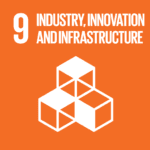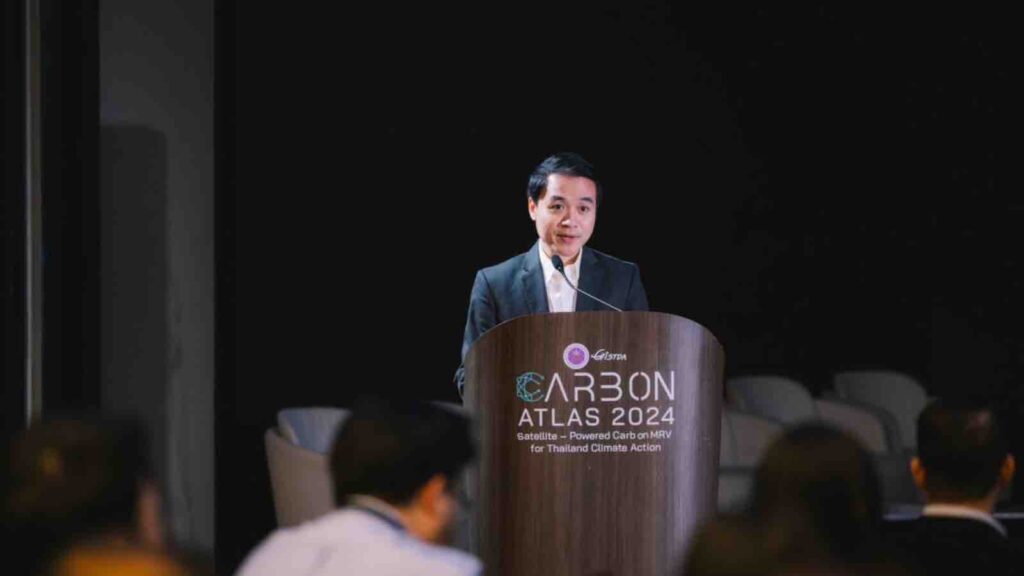The GISTDA’s Carbon Atlas 2024 sets a new benchmark for innovative climate action in Thailand and beyond.
Bangkok, Thailand — On November 25, 2024, the Geo-Informatics and Space Technology Development Agency (GISTDA), under the Ministry of Higher Education, Science, Research, and Innovation (MHESI), launched the groundbreaking Carbon Atlas 2024 initiative. Held at the CDC Ballroom in Bangkok, the event spotlighted cutting-edge innovations in carbon monitoring, reporting, and verification (MRV) to propel Thailand toward carbon neutrality and net-zero emissions.
RELEVANT SUSTAINABLE GOALS



With the theme “Satellite-Powered Carbon MRV for Climate Action”, the conference brought together stakeholders from government, private sectors, academia, and non-profit organizations to discuss actionable strategies for combating climate change through advanced technology.
A New Era of Carbon Tracking
GISTDA introduced the Carbon Atlas Platform, a digital solution powered by satellite technology and geospatial data to monitor natural resources such as forests, mangroves, and agricultural lands. The platform evaluates carbon sequestration and greenhouse gas emissions, aiding in the development of national environmental policies.
“Satellite-based Carbon MRV enables accurate monitoring of natural resources and carbon emissions, supporting national and global environmental planning,” said Dr. Siriluck Pruekpitikul, Deputy Director of GISTDA.
The agency emphasized its shift from traditional carbon credit monitoring methods to a digital approach, termed Digital Monitoring, Reporting, Verification (DMRV). This includes the integration of cutting-edge tools such as 3D Scanners, LiBackpack, and LiDAR drones, enhancing the precision and efficiency of carbon measurement.
Cross-Sector Collaboration for Climate Action
Collaboration was a key highlight of the event, with GISTDA partnering with multiple government agencies, including:
- Thailand Greenhouse Gas Management Organization (TGO)
- Royal Forest Department
- Department of National Parks, Wildlife, and Plant Conservation
- Electricity Generating Authority of Thailand (EGAT)
These partnerships aim to expand afforestation efforts, prevent forest fires, and enhance carbon sequestration capabilities. Future plans include co-developing large-scale carbon sequestration models to improve accuracy and coverage.
GISTDA also announced its collaboration with the Mae Fah Luang Foundation, focusing on community forests and generating income through carbon credits under the T-VER and Premium T-VER standards.
Empowering Carbon Management Through Data
GISTDA’s advancements aim to support Thailand’s international climate commitments, including:
- National Communication (NC) reporting
- Biennial Update Report (BUR) submissions
These efforts ensure that Thailand’s climate action data is accurate, verifiable, and aligned with global standards.
“By providing reliable data and fostering collaboration across sectors, GISTDA is paving the way for sustainable natural resource management and a higher quality of life for Thai citizens,” Dr. Siriluck stated.
The Carbon Atlas 2024 initiative represents a significant step toward addressing climate change. By integrating advanced space technology with community-driven projects, the program demonstrates Thailand’s commitment to sustainable development and global environmental stewardship.
You may also be interested in :
Building Climate Resilience: Chiang Mai’s Cleanup Inspires Climate Adaptation Across Thailand




